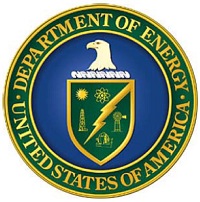 Three labs working on advanced, next-generation biofuels will get funding for another five years … of course, if Congress funds it. The U.S. Department of Energy announced the intent to fund the BioEnergy Research Center (BESC) led by Oak Ridge National Laboratory, the Great Lakes Bioenergy Research Center (GLBRC) led by the University of Wisconsin-Madison in partnership with Michigan State University, and the Joint BioEnergy Institute (JBEI) led by Lawrence Berkeley National Laboratory. All three were part of the DOE’s 2007 program to accelerate fundamental research breakthroughs:
Three labs working on advanced, next-generation biofuels will get funding for another five years … of course, if Congress funds it. The U.S. Department of Energy announced the intent to fund the BioEnergy Research Center (BESC) led by Oak Ridge National Laboratory, the Great Lakes Bioenergy Research Center (GLBRC) led by the University of Wisconsin-Madison in partnership with Michigan State University, and the Joint BioEnergy Institute (JBEI) led by Lawrence Berkeley National Laboratory. All three were part of the DOE’s 2007 program to accelerate fundamental research breakthroughs:
“Developing the next generation of American biofuels will enhance our national energy security, expand the domestic biofuels industry, and produce new clean energy jobs. It will help America’s farmers and create vast new opportunities for wealth creation in rural communities,” said Energy Secretary Steven Chu. “By investing in innovative approaches and technologies at our Bioenergy Research Centers, we can continue to move the biofuels industry forward and grow our economy while reducing our reliance on foreign oil.”
In five years of operation, the Centers have produced more than 1,100 peer-reviewed publications and over 400 invention disclosures and/or patent applications. Among the breakthroughs the Centers have achieved are new approaches for engineering non-food crops for biofuel production; reengineering of microbes to produce advanced biofuels such as “green” gasoline, diesel, and jet fuel precursors from biomass; and the development of methods to grow non-food biofuel crops on marginal lands so as not to compete with food production.
Each of the centers is expected to be funded at $25 million per year. The next five years are expected to emphasize work on new methods and discoveries, as well as developing new lines of research.

